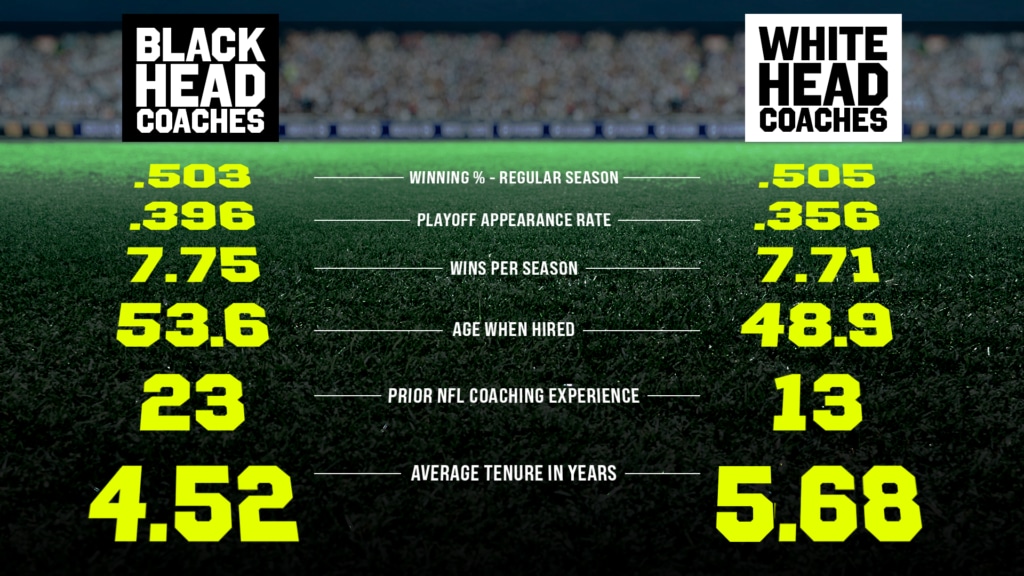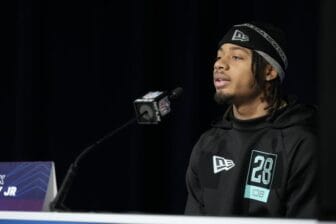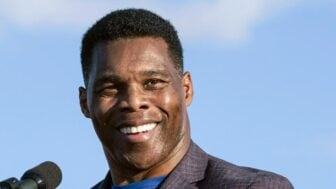Number crunchers have vanquished starting pitching and brought a barrage of 3-pointers to basketball.
Now they’re taking on a more intractable — and important — issue: making sports more inclusive.
The MIT Sloan Sports Analytics Conference this weekend features at least six sessions on diversity, equity and inclusion, from a discussion of the NFL’s Rooney Rule to one on transgender athletes. They’re using the same analytics increasingly applied to player performance to show what’s working, what isn’t, and how much work remains to make the world of sports more inclusive.
“It starts by shining light on data,” FanDuel CEO Amy Howe said during one panel on diversity. “Even though we might not love our starting point, we need to know what the starting point is so we can measure our progress.”
First held in 2007 as a one-day, on-campus affair attracting about 175 nerdy sports fans, the analytics conference now brings more than 2,200 people from hundreds of sports, leagues, teams and schools to one of Boston’s biggest convention centers.
As the gathering has grown, the field has transitioned into the mainstream, taking over the front office and corner office of teams and leagues and media companies.
The topics, too, have shifted.
An early emphasis on on-field performance — whether it was deciding when to sacrifice bunt (almost never, it turns out) or go for it on fourth down (much more often than coaches actually do) — has increasingly focused on the money-making side of sports, including gambling.
In the wake of a national reckoning over systemic racism, this year’s conference is tackling the lack of diversity in sports.
“In our organization, post-George Floyd, we had a ton of internal conversations just to get to know each other better on that plane,” Boston Celtics director of player development Allison Feaster said.
Among the topics, Feaster said: Vaccine skepticism, business loans for people of color, and voting. Those conversations often don’t take place in a monochromatic, all-male room.
“It’s not about vanity metrics. When you create a more diverse environment, it absolutely leads to higher performance,” Howe said. “It’s about diversity of thinking.”
The two-day analytics conference began Friday with a presentation on the Rooney Rule, which requires NFL teams to interview a minority candidate for top coaching jobs. FanDuel hosted a Q&A on diversity, equity and inclusion.
Another panel addressed the evolving fight for diversity; there was also one on Title IX. Saturday’s agenda included a panel on transgender athletes and one on attracting audiences to women’s sports.
A mentorship program, which pairs students and young professionals from underrepresented backgrounds with industry representatives, was expanded to 50 people. A women’s networking lunch has become a conference staple.
“It’s fantastic that the prevalence of analytics and the interest in diversity, equity and inclusion are coinciding right now,” said Chris Rider, a professor at Michigan’s Ross School of Business who has studied the NFL’s Rooney Rule.

“We can learn a lot about sports by analyzing the data within sports — and there are many people here to do it,” he said. “But I think we can also learn lessons that are generalizable to organizations well beyond sports and get the public’s attention by making changes.”
Rider’s study is inconclusive whether the Rooney Rule is working. (There are five non-white men among the NFL’s 32 head coaches, though the representation of minorities among assistants has risen from 13% to 40%.)
His solution: expanding the rule to include other team jobs, with a controlled study to see whether it has an effect.
“Every year we have the same conversation: Is the Rooney Rule working? And the way it’s been implemented, we’re really never going to know,” Rider said. “Next year, we come back and we know if it works or not. And if it doesn’t, we’ll find something better.”
Others at the conference don’t need more data.
Broderick Hicks, the vice president of brands for the Wasserman agency, said he will know things have improved when he is no longer asked to appear on panels promoting diversity, equity and inclusion.
“Yeah, we’ve done this panel over and over again,” he said, semi-seriously hoping that it would be the last diversity panel at the conference.
“How about just putting us on the other panels?” he said. “Otherwise we’re just spinning, and we’re not really talking.”
TheGrio is now on your TV via Apple TV, Amazon Fire, Roku, and Android TV. Also, please download theGrio mobile apps today!



 (@SportsLawLust)
(@SportsLawLust) 






More Stories
Federal work shaped a Black middle class. Now it's destabilized by Trump's job cuts – NPR
Gwede Mantashe: 'If I were president, I would send black people to go build inside Orania' – MSN
Some artifacts removed from African American history museum after executive order – NBC4 Washington